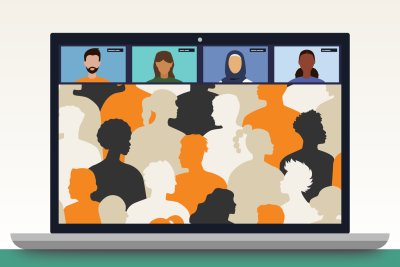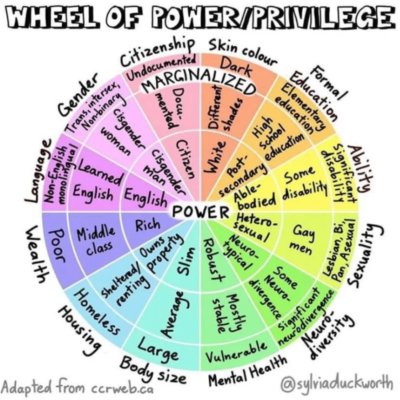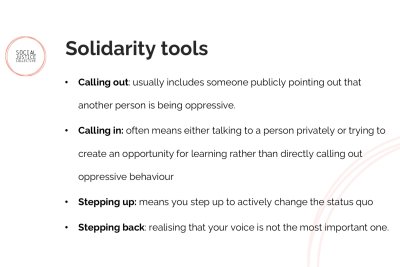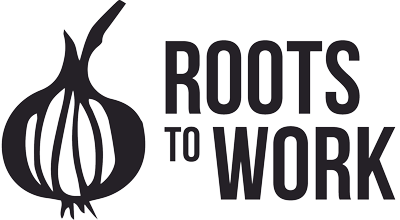
This month, Sustain and Eating Better held the second of three workshops on ‘How to be an anti-racist organisation’ with the support of Social Justice Collective. The aim of the second session was to understand the impact of anti-racism work and why it matters to the sector through reflections on solidarity and allyship, real life case studies and scenarios for group brainstorming.
What we learned
Participants have a solid understanding of what solidarity and allyship look like in practice. However, many struggled to know how to make a difference as individuals, especially those not in senior management positions. There was also trepidation around the consequences of acting in solidarity and speaking up. However, the participants were eager to learn how to confront these challenges.
It became clear that people want a forum or community space where they can access resources and share knowledge, what they have been doing, and get peer support.
How the session went
As a pre-workshop task, participants were asked to reflect on how privilege manifests in their organisations using the Four I’s of Oppression framework. These reflections (below) set the stage for meaningful dialogue during the workshop.
Interpersonal privilege is displayed by people remaining silent to injustices for a number of different reasons. A lack of knowledge and understanding of others’ experiences and issues feeds into this. Many organisations have majority white culture/teams/boards (often unacknowledged) and this also leads to people from minoritised backgrounds being relied on to educate others.
Institutional privilege shows up through majority white and male senior leadership and board structures, creating power imbalances and less inclusive organisational practices; often relying on free or cheap labour, taking advantage of people’s commitment to the cause. Justice work is also not prioritised, seen as a ‘nice to have’, rather than a central pillar in achieving sustainable systems change.
Ideological privilege is characterised by assumptions and bias, with organisations displaying a paternalistic, colonial ‘we know what marginalised communities need best’ mindset. It also includes the perpetuation of oppressive and disempowering language and expectation and prioritisation of academic knowledge.

Defining allyship and solidarity
We began the workshop with participants sharing their thoughts on allyship, which emphasised:
- Active support and solidarity
- Making space for and amplifying voices of those affected by oppression
- Listening, learning and self-education (without burdening people from marginalised groups).

The group discussed how solidarity tools could be used in their own workplaces.
Challenges to using solidarity tools in organisations, included:
- Fear of saying the wrong thing
- Adverse reactions from management
- Defensive responses from others
Insightful ideas on how overcome these challenges included:
- Investing in training
- Improving policies
- Establishing organisational support
- Working as a team
- Embracing vulnerability
- Being open to correction as a learning opportunity
Inspiring examples
To celebrate and acknowledge positive action already happening, we shared 3 case studies that demonstrate what anti-racism and equity looks like in practice in the sustainable food sector.
- Nourish Scotland and their meaningful participatory panel
- Landworkers’ Alliance identity groups
- The Blueprint Architects and their transformative co-design principles.
They inspired participants in the final exercise where everyone was tasked with creating actions for 3 sector specific scenarios. They covered organisational EDI policy and processes, fair recruitment and board engagement in a community organisation and inclusivity in farming. The groups generated many actionable ideas, revealing their existing knowledge on what good practice looks like. Our next steps will be learning how to implement similar actions in our own organisations.
Final thoughts
The workshop underlined that practising solidarity is an ongoing commitment that may come with personal costs but is essential for driving racial justice. Allyship is more than posting a black square on social media; it is a lifelong commitment to actively recognise and challenge oppressive structures.
Collectively, we hold the power to not only recognise injustice but also to act against it. By acknowledging our roles in perpetuating these structures and committing to unlearning oppressive behaviours, we can engage in daily practices of solidarity. This is not a one-time event but a continual process that requires dedication and collaboration.
There is good work already happening in the sector and by connecting, learning from each other and commiting to action, we can collaboratively drive change.
What's next
In the final workshop we will consolidate our learnings and explore ways to implement actions for anti-racist practice in our organisations. Participants will be able to express how they can make an impact as individuals as well.
Further Reading
Solidarity and allyship graphic
Moving from solidarity to allyship article



